Filter by
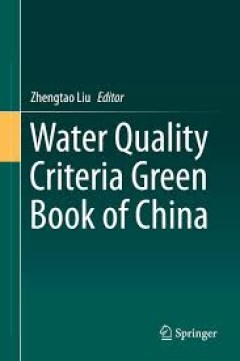
Water Quality Criteria Green Book of China
The book mainly introduces readers to the development and current status of water quality criteria (WQC) in China and other countries or areas, and proposes a minimum toxicity data requirement (MTDR; i.e., six species from three phyla) as the principle metric for deriving WQC in China. Further, ten model species from 4 different phyla are recommended as domestic test species, and the methodolog…
- Edition
- -
- ISBN/ISSN
- 978-94-017-7270-9
- Collation
- -
- Series Title
- -
- Call Number
- -
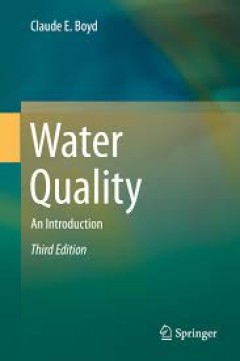
Water Quality An Introduction
The revised second edition updates and expands the discussion, and incorporates additional figures and illustrative problems. Improvements include a new chapter on basic chemistry, a more comprehensive chapter on hydrology, and an updated chapter on regulations and standards. This book presents the basic aspects of water quality, emphasizing physical, chemical, and biological factors. The s…
- Edition
- -
- ISBN/ISSN
- 978-3-319-17446-4
- Collation
- -
- Series Title
- -
- Call Number
- -
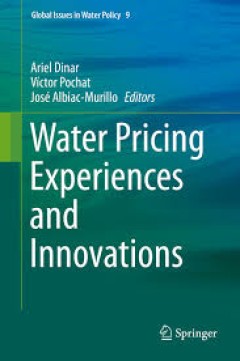
Water Pricing Experiences and Innovations
Water pricing to achieve conservation in scarce water resources is a major policy challenge. This book provides credible evidence from water pricing experiences in various countries around the world. The book chapters, written by experts in water pricing from various countries, documents the past 10 to 15 years of water pricing experiences in Australia, Brazil, Canada, China, Colombia, France, …
- Edition
- -
- ISBN/ISSN
- 978-3-319-16465-6
- Collation
- -
- Series Title
- -
- Call Number
- -
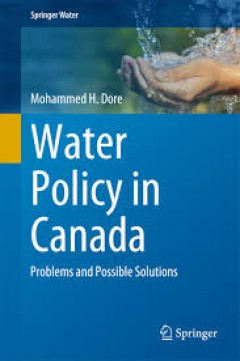
Water Policy in Canada Problems and Possible Solutions
This book deals with the water policy and management in Canada. It discusses various problems and risks in the fresh and drinking water supply in the second largest country in the world. Mohammed Dore argues that water is underpriced and used wastefully in Canada. In selected case studies, he illustrates the major threats from human activity to Canadian freshwaters and drinking water resources,…
- Edition
- -
- ISBN/ISSN
- 978-3-319-15883-9
- Collation
- -
- Series Title
- -
- Call Number
- -
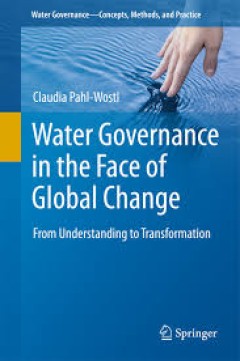
Water Governance in the Face of Global Change From Understanding to Transfor…
This book offers the first comprehensive treatment of multi-level water governance, developing a conceptual and analytical framework that captures the complexity of real water governance systems while also introducing different approaches to comparative analysis. Applications illustrate how the ostensibly conflicting goals of deriving general principles and of taking context-specific factors in…
- Edition
- -
- ISBN/ISSN
- 978-3-319-21855-7
- Collation
- -
- Series Title
- -
- Call Number
- -
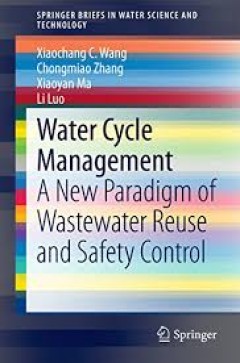
Water Cycle Management A New Paradigm of Wastewater Reuse and Safety Control
This book focuses on environmental engineering, and on wastewater treatment and reuse in particular, which is a vital aspect for countries and regions suffering from water shortages. It introduces a new water cycle management concept for designing water systems that mimic the hydrological cycle, where reclaimed water is produced, stored/regulated, supplied and used in a semi-natural manner so t…
- Edition
- -
- ISBN/ISSN
- 978-3-662-45821-1
- Collation
- -
- Series Title
- -
- Call Number
- -
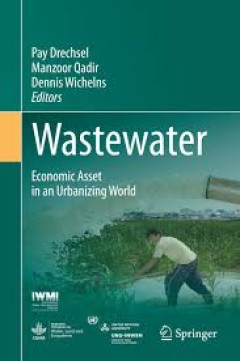
Wastewater Economic Asset in an Urbanizing World
The books provides a timely analysis in support of a paradigm shift in the field of wastewater management, from ‘treatment for disposal’ to ‘treatment for reuse’ by offering a variety of value propositions for water, nutrient and energy recovery which can support cost savings, cost recovery, and profits, in a sector that traditionally relies on public funding. The book provides new insi…
- Edition
- -
- ISBN/ISSN
- 978-94-017-9545-6
- Collation
- -
- Series Title
- -
- Call Number
- -
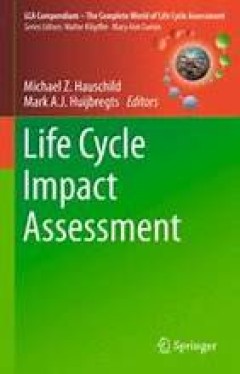
Life Cycle Impact Assessment
This book offers a detailed presentation of the principles and practice of life cycle impact assessment. As a volume of the LCA compendium, the book is structured according to the LCIA framework developed by the International Organisation for Standardisation (ISO)passing through the phases of definition or selection of impact categories, category indicators and characterisation models (Classifi…
- Edition
- 1
- ISBN/ISSN
- 978-94-017-9744-3
- Collation
- Air Industri
- Series Title
- -
- Call Number
- 551.23
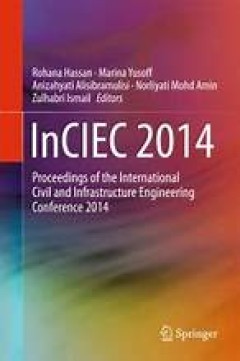
InCIEC 2014
The special focus of this proceedings is to cover the areas of infrastructure engineering and sustainability management. The state-of-the art information in infrastructure and sustainable issues in engineering covers earthquake, bioremediation, synergistic management, timber engineering, flood management and intelligent transport systems. It provides precise information with regards to innovati…
- Edition
- 1
- ISBN/ISSN
- 978-981-287-290-6
- Collation
- Business
- Series Title
- -
- Call Number
- 650
Implications of Land Use and Cover Changes on Upper River Rwizi Macro-Watersh…
- Edition
- -
- ISBN/ISSN
- 978-1-80355-036-7
- Collation
- -
- Series Title
- -
- Call Number
- -
 Computer Science, Information & General Works
Computer Science, Information & General Works  Philosophy & Psychology
Philosophy & Psychology  Religion
Religion  Social Sciences
Social Sciences  Language
Language  Pure Science
Pure Science  Applied Sciences
Applied Sciences  Art & Recreation
Art & Recreation  Literature
Literature  History & Geography
History & Geography